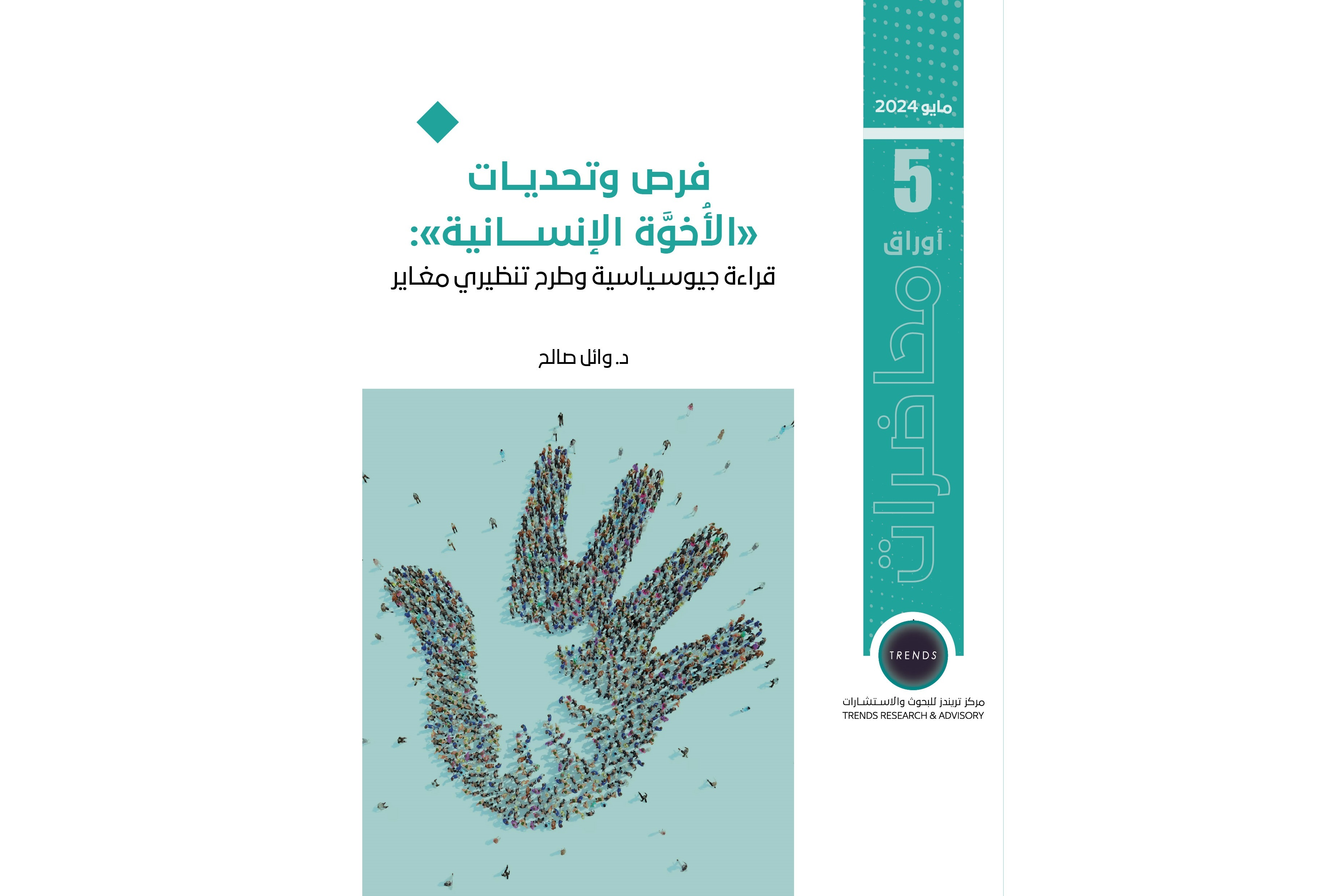TRENDS Research and Advisory released issue no. 5 of its Lecture Papers series, entitled “Opportunities and Challenges of Human Fraternity : A Geopolitical Reading and a Different Theoretical Proposition”. The paper deals with the concept of “human fraternity” from a geopolitical perspective, and presents a different theoretical argument for understanding its opportunities and challenges in a world that is witnessing deep transformations.
The paper, which was authored by Dr. Wael Saleh, an expert at TRENDS’ Department of Political Islam Studies, defines “human fraternity” as the universal bond that connects all human beings, uniting what has been separated by different types of religiosity, politics, ethnicity, race or class. It underlines that human beings are brothers in terms of species, gender and dignity, and that everyone seeks justice, equality, dignity, security and happiness.
The paper indicates that it is only through human fraternity that we can achieve societal and global solidarity in confronting common human challenges, supporting threatened peace in the world, and changing conflict relationships between major religions, cultures and civilizations into relationships based on dialogue and convergence.
The paper discusses the role of the “Document on Human Fraternity for World Peace and Living Together”, which was adopted as an international initiative following the historic meeting between His Eminence Prof. Ahmed Al-Tayeb, the Grand Imam of Al-Azhar Al-Sharif, and Pope Francis, Pope of the Catholic Church, in Abu Dhabi on February 4, 2019. The paper underlines that the document has played an important role in achieving rapprochement between different cultures, and that it constitutes a call for fraternity among all human beings, something most needed by our world today.
However, the paper indicates that the world today is witnessing profound transformations in the structure of international relations. These transformations are mainly the result of other negative, mainly demographic, environmental and economic ones. The paper discusses the impact of these transformations on the opportunities and challenges of human fraternity.
The paper offers a different theoretical argument to understand the opportunities and challenges of human fraternity in light of these transformations. It underlines that human fraternity can only be achieved through joint international efforts, and that action must be taken to promote dialogue and tolerance between all cultures and religions.



